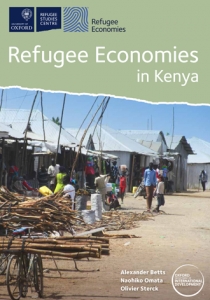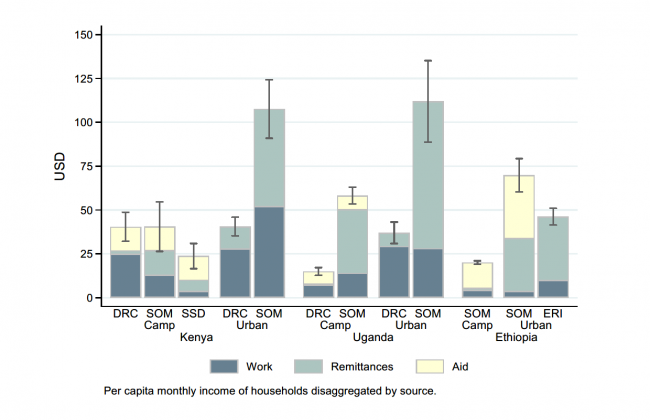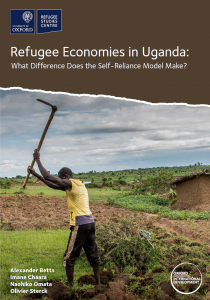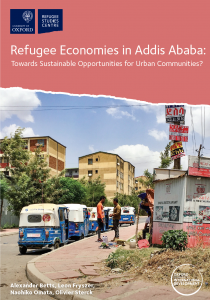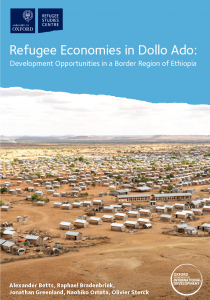Dataset - Refugee Economies
Credit: R. Bradenbrink
Refugee Economies Programme: Dataset
Between 2016 and 2021 we collected an original panel dataset, based on multi-country and time-series data collection, to understand and explain the variation in socio-economic outcomes for refugees. This cross-sectional dataset contains data on refugees only and covers urban and rural areas in Uganda, Kenya, and Ethiopia. It includes almost 9,000 refugees from across six research sites.
Between 2016-2021, the Refugee Economies Programme undertook research on the economic lives of refugees. The aim was to make an evidence-based contribution to the ways in which governments, international organisations, NGOs, and businesses support the socio-economic inclusion of refugees.
The survey collected data on income, expenditure, assets, health, education, migration, attitudes, and more, enabling us to explore a series of correlations. Drawing on this dataset, we have been able to explore themes such as the role of development indicators in influencing refugees’ mobility choices and the determinants of variation in refugees’ income levels. It has also allowed us to theorize a broader set of questions such as what is economically distinctive about refugees. We are pleased to make this dataset available for use by other researchers and practitioners.
About the Dataset
This cross-sectional dataset contains data on refugees only. It combines household survey data from six separate data collection exercises:
- 2016: Kakuma Refugee Camp, Kenya
- 2017: Nairobi, Kenya
- 2018: Nakivale Refugee Settlement, Uganda
- 2018: Kampala, Uganda
- 2018: Dollo Ado Refugee Camp, Ethiopia
- 2018: Addis Ababa, Ethiopia
The sampling strategies for each survey can be found in the following reports:
- Nairobi and Kakuma, Kenya: Refugee Economies in Kenya
- Kampala and Nakivale, Uganda: Refugee Economies in Uganda
- Addis Ababa, Ethiopia: Refugee Economies in Addis Ababa
- Dollo Ado, Ethiopia: Refugee Economies in Dollo Ado
Terms of use: These files are made freely available, but we ask that a citation to the original article is included in any paper, article, book, or other publication that makes use of the data. If you have any questions about our terms of use, please contact olivier.sterck@uantwerpen.be
Download the Data
zip 2.7MB
To download the data please agree to the terms of use:
Please find further information about how to use this dataset in the ‘READ ME’ file.
We are grateful to the IKEA Foundation and the Danish Ministry of Foreign Affairs (Danida) for financing the data collection.
If you experience any problems downloading this dataset, please contact madison.bakewell@qeh.ox.ac.uk

